Looking to find out where the most expensive places to rent an apartment in the UK are?
According to Zoopla's latest rental market report, the UK has seen a 3.9% increase in rents over the past year, bringing the average monthly rent to £1,270. This marks the slowest growth rate since August 2021.
Over the past three years, the average annual UK rental cost has risen by £3,240, a 27% increase compared to earnings growth of 19%.
The report gives us a glimpse at how inflation is impacting rent across the UK. With a clear focus on how some areas are facing bigger increases than others as interest rates soar.
Why Do Certain Areas Have Higher Rent?
Before diving into the list, it’s important to understand why certain areas command higher rent. Factors include:
- Proximity to major employment hubs: Cities like London, Manchester, and Edinburgh attract professionals, driving up demand.
- Quality of life: Areas with good schools, healthcare, and green spaces tend to command higher rents.
- Transport links: Cities with strong rail and bus networks are more desirable, leading to increased demand.
- Cultural & social attractions: A vibrant nightlife, dining scene, and tourism contribute to higher rental costs.
The top 15 most expensive places to rent in the UK
The ongoing demand for rental properties in the UK’s major cities has led to significant increases in average rental prices, especially in key urban areas. London remains the most expensive city to rent, with average rents reaching over £2,100 per month. This reflects the high demand for housing in the capital, driven by its status as a global business and cultural hub. Other cities such as Cambridge and Brighton, which offer proximity to London and high living standards, also command high rental prices, with averages above £1,300 and £1,600, respectively.
Based on the information available from the link you provided and other recent sources, here is the updated table and two contextual paragraphs:
Table: Top 15 Most Expensive Places to Rent in the UK (2025)
| Rank | City | Avg. 1 Bed Rental in City Centre (PCM) |
|---|---|---|
| 1 | London | £2,121 |
| 2 | Cambridge | £1,300 |
| 3 | Brighton | £1,616 |
| 4 | Oxford | £1,400 |
| 5 | Bristol | £1,389 |
| 6 | Edinburgh | £1,263 |
| 7 | Reading | £1,250 |
| 8 | Manchester | £1,070 |
| 9 | Milton Keynes | £1,239 |
| 10 | Bournemouth | £1,150 |
| 11 | Glasgow | £951 |
| 12 | Leeds | £969 |
| 13 | Birmingham | £934 |
| 14 | Nottingham | £947 |
| 15 | Belfast | £751 |
The South-West, represented by cities like Bristol, continues to see rising rental prices, driven by its cultural appeal and robust transport links. Edinburgh and Glasgow represent Scotland on this list, showcasing their increasing popularity due to their rich cultural heritage and economic opportunities. Meanwhile, cities like Manchester and Birmingham remain attractive due to their strong job markets and vibrant social scenes, keeping them among the top rental markets in the UK. As demand continues to outstrip supply in these areas, rental prices are expected to maintain their upward trend, although the rate of increase has begun to show signs of slowing
London
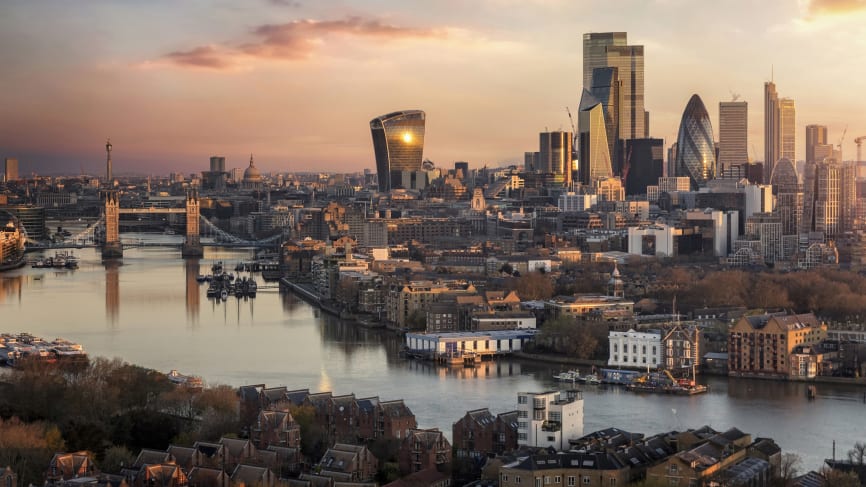
With plenty of jobs, culture, history and more, London has everything you need. It's also why the demand for rental property is so high. With a lack of social housing, demand for properties in the capital has skyrocketed.
The UK's capital remains the most expensive city to rent, with average rents exceeding £2,100 per month. The combination of job opportunities, transport links, and cultural attractions keeps demand high.
Cambridge

As one of the UK's top commuter towns, Cambridge's rental market is driven by its proximity to London and a world-renowned university.. Cambridge is regularly listed among the best commuting towns for workers in London. Its idyllic countryside and 51 minute train ride into London make it the ideal place to live.
Brighton
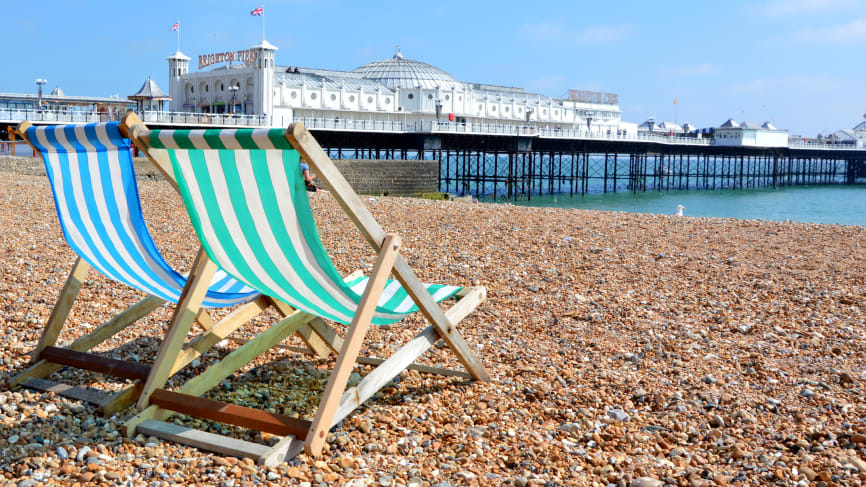
This seaside city offers an ideal mix of urban convenience and coastal relaxation, making it a desirable location despite its high rent.
Oxford

Home to one of the world's most prestigious universities, Oxford's high quality of life and picturesque surroundings make it a rental hotspot.
Filled with independent stores and easy access to beautiful countryside. Oxford is another area that offers idyllic living with great links to the capital.
Bristol
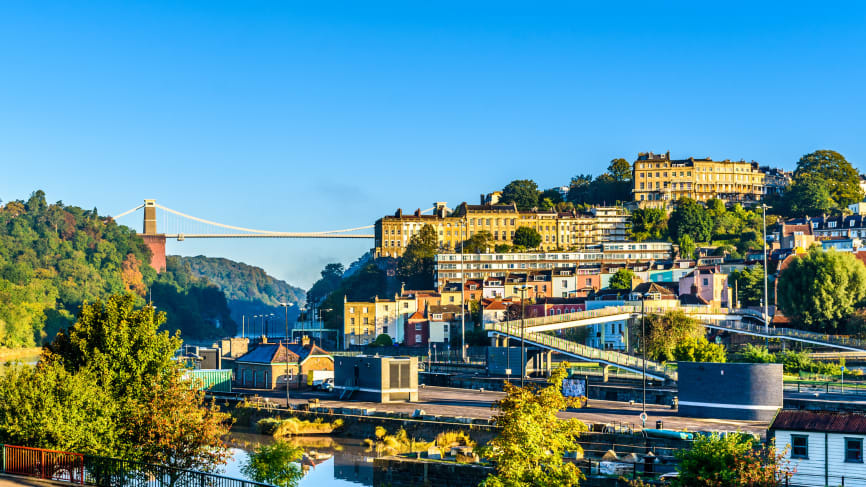
A hub of arts and culture, Bristol's strong economy and excellent transport connections continue to attract renters.
Bristol is one of the best places in the UK for transport. With direct links to some of the biggest cities in the UK. These include London, Manchester, Birmingham and Cardiff.
EDINBURGH

Scotland's capital balances historical charm with a growing job market, making it one of the UK's most in-demand rental cities.
Reading
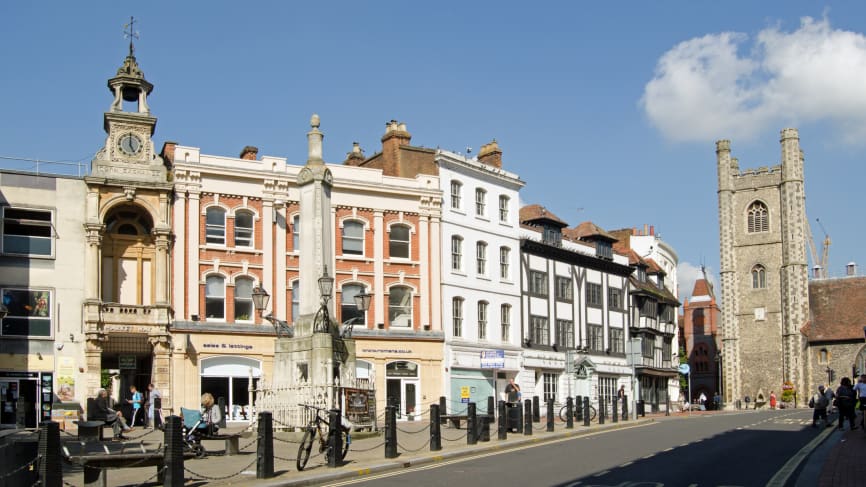
Another South-East city, Reading, sits around 1hr 30 mins drive from London. It also boasts 25-minute train journeys into the capital, again perfect for commuting.
Reading is one of the ideal places for London workers to live more affordably than in the capital.
Manchester
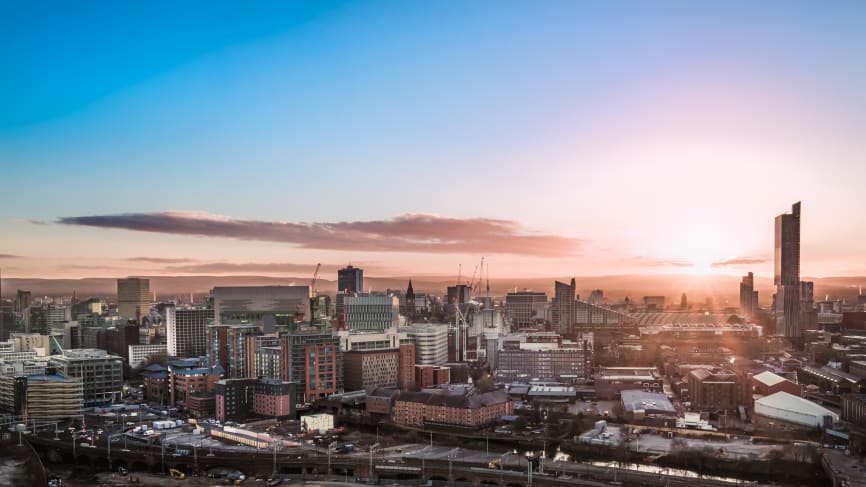
One of the UK’s capitals of science and Industry, Manchester is the first city on the list situated in the North. The city is often cited as the capital of science and industry. It boasts excellent job prospects, vibrant culture and a thriving social scene.
From Manchester's Piccadilly station, you can catch a train to pretty much anywhere in the UK. It's a modern and cosmopolitan city popular with students. It has one of the highest graduate retention rates, around 51.5% of students decide to stay in Manchester.
Milton Keynes
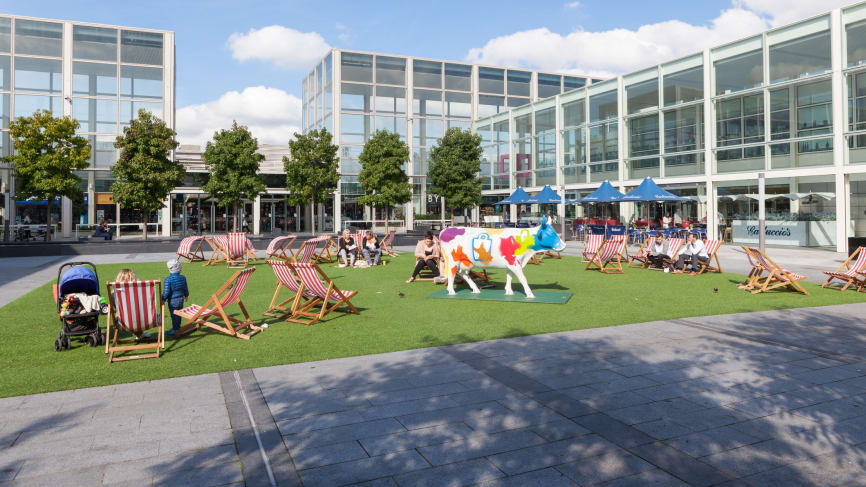
Again, Milton Keynes boasts excellent transport links to London. Making it another popular destination for commuters. Filled with leisure and amenities it boasts some of the nation's best green spaces.
Manchester

One of the UK’s capitals of science and Industry, Manchester is the first city on the list situated in the North. The city is often cited as the capital of science and industry. It boasts excellent job prospects, vibrant culture and a thriving social scene.
From Manchester's Piccadilly station, you can catch a train to pretty much anywhere in the UK. It's a modern and cosmopolitan city popular with students. It has one of the highest graduate retention rates, around 51.5% of students decide to stay in Manchester.
Bournemouth
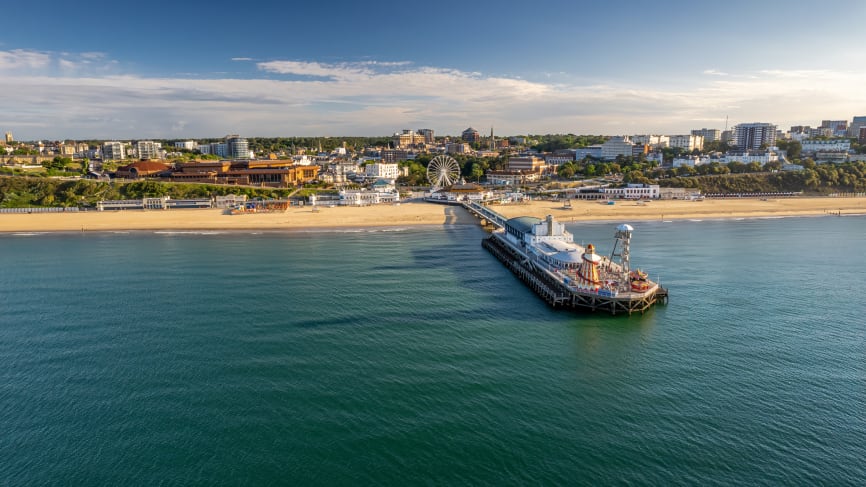
Bournemouth sits on the Dorset coast, adorned with golden sandy beaches. It has a mix of big brand shops and independent stores, award-winning gardens and more.
Bournemouth is also home to the Jurassic Coast, a world heritage site. Amongst many other amazing places of interest, including the New Forest National Park.
Glasgow
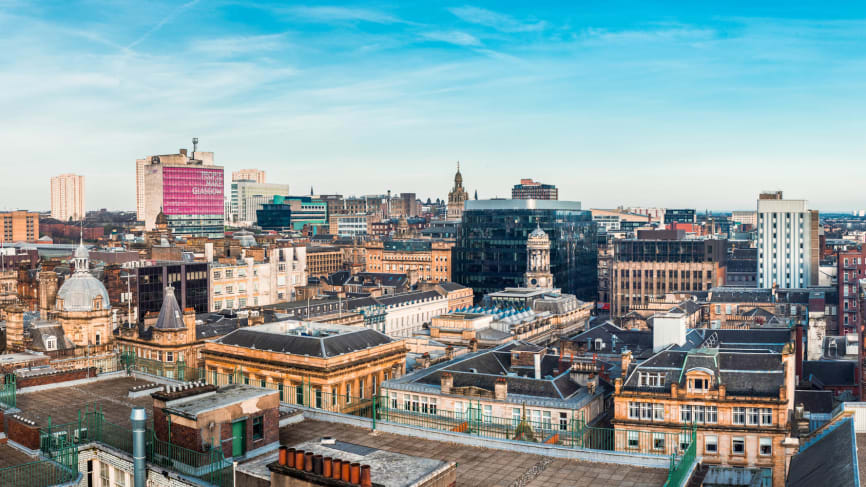
If you're eager to make the move to Scotland but don't want the business of Edinburgh, then Glasgow is the place to go. Glasgow is a less touristy city, with an amazing art and culture scene.
Over the last few decades, the city has seen a big regeneration. Now it's a popular destination for young professionals. Plus it has great links to the natural beauty of the Highlands and beyond.
Leeds

Another of the North-West's cosmopolitan cities. Leeds is popular with students and professionals alike. Due to the vibrant job market, amazing culture and social scene.
Those living in Leeds not only have access to the bustling city but also some of the UK's best National Parks. Plus, its closeness to major motorways such as the M1 and M62 makes national travel easy.
Birmingham
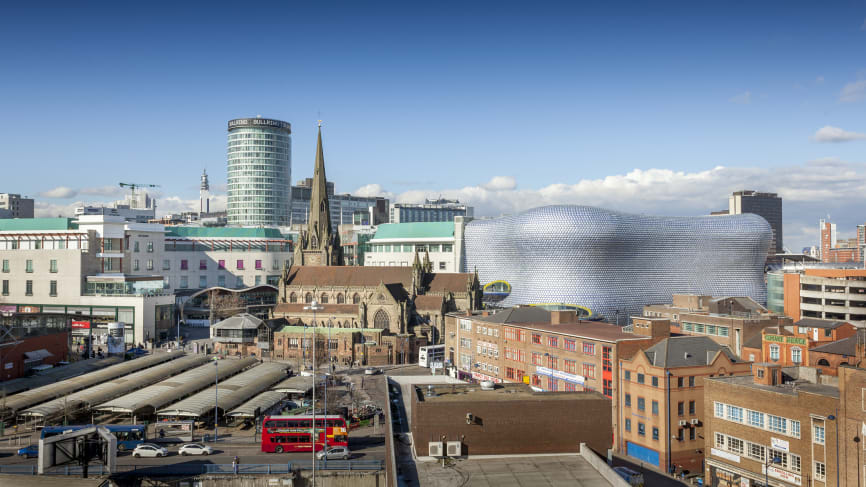
Once the leader of the industrial revolution, Birmingham is now one of the UK's biggest cities. Recently a host to the Commonwealth Games, the city is a centre for sport, art and media.
Birmingham is also close to quieter countryside living and has excellent transport links. From Birmingham's New Street station you can access trains to anywhere in the UK. Including the capital, London.
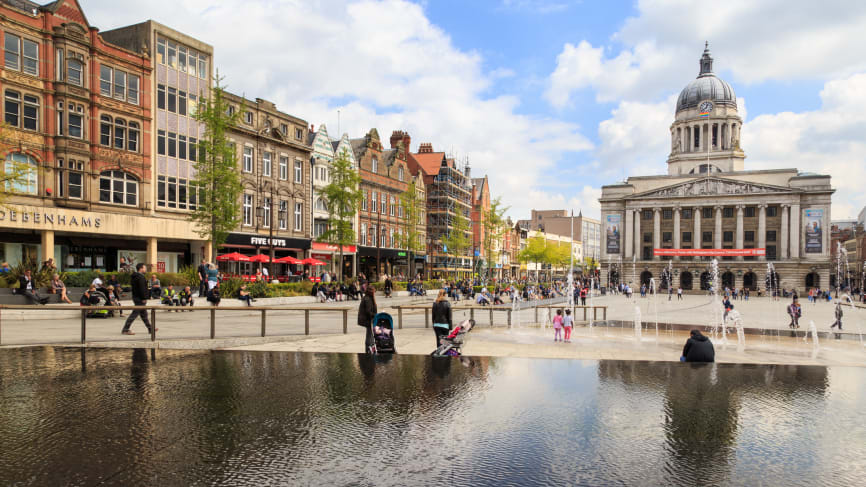
Situated in England's East Midlands, Nottingham has long been a popular student location. Now it's also proving popular with young professionals. Offering a mix of classic and contemporary and easy access to stunning countryside.
Belfast

The only city in Northern Ireland to make the list. Belfast is NI's capital city and popular with creatives. It's surrounded by natural beauty and always has something going on. From festivals to markets, Belfast regularly plays host to fun cultural events.
The city may have one of the highest average rental prices in the UK, but the cost of living is affordable. With consumer prices costing 23.5% less than London.
The city is very much in the heart of the UK with its access to the country's best transport links. Including the M1 and M6 motorways, leading you to the UK's biggest cities and attractions.
Spotlight on the UK’s Most Expensive Rental Markets
1. London
The UK’s capital remains the most expensive city to rent, with average rents exceeding £2,100 per month. The combination of job opportunities, transport links, and cultural attractions keeps demand high.
2. Cambridge
As one of the UK’s top commuter towns, Cambridge’s rental market is driven by its proximity to London and a world-renowned university.
3. Brighton
This seaside city offers an ideal mix of urban convenience and coastal relaxation, making it a desirable location despite its high rent.
4. Oxford
Home to one of the world’s most prestigious universities, Oxford’s high quality of life and picturesque surroundings make it a rental hotspot.
5. Bristol
A hub of arts and culture, Bristol’s strong economy and excellent transport connections continue to attract renters.
6. Edinburgh
Scotland’s capital balances historical charm with a growing job market, making it one of the UK’s most in-demand rental cities.
What Drives High Rental Costs?
- Demand from students and professionals: Cities with top universities and strong job markets attract renters.
- Limited housing supply: A shortage of available properties means landlords can charge premium prices.
- High quality of life: Cities offering excellent amenities, nightlife, and transport links see consistently high demand.
Future Predictions for Rental Prices
As demand continues to outstrip supply, rental prices in these cities are expected to keep rising, although at a slower rate than previous years. Government policies, interest rate changes, and economic factors will also play a key role in shaping future trends.
Tips for Renters in Expensive Cities
- Consider suburban areas – Towns like Reading, Luton, and St Albans offer more affordable options with strong transport links.
- Flat share – Splitting rent with a housemate can significantly cut costs.
- Negotiate rent – Depending on demand, some landlords may be open to negotiation, especially for long-term tenants.
The Most Expensive Places To Rent in The UK
All 15 of the UK's most expensive places to rent have a lot to offer, but supply and demand remain an issue. Many of these cities say the demand for rental properties is the cause of increasing prices.
Private rentals are affected by inflation and too little social housing is being built. More renters than ever are looking for affordable and easy rental solutions. If you're looking for somewhere to live in or near London, explore our apartments to rent.
Conclusion
Renting in the UK's most expensive cities comes with a premium, but it often reflects the quality of life, opportunities, and amenities these areas offer. Whether you’re a student, professional, or investor, understanding the rental market can help you make the best choices for your lifestyle and financial goals.
FAQ: The Most Expensive Places to Rent in the UK
1. What are the most expensive cities to rent in the UK?
The most expensive cities to rent in the UK include London, Oxford, Cambridge, Edinburgh, and Brighton. London consistently ranks as the most expensive, with average monthly rents exceeding £1,700. Oxford and Cambridge also have high rents due to their prestigious universities and strong local economies.
2. Why is London the most expensive place to rent in the UK?
London is the most expensive place to rent in the UK due to its status as a global financial and cultural hub. High demand for housing, a robust job market, extensive public transport, and numerous amenities contribute to the city's high rental prices. Areas like Kensington, Chelsea, and Westminster are among the priciest.
3. Are there affordable alternatives to renting in expensive UK cities?
Yes, there are affordable alternatives to renting in expensive UK cities. Consider looking in suburban areas or nearby towns with good transport links to major cities. For instance, commuters might find more affordable rent in places like Reading or Luton while still being close to London.
4. How can I find cheaper rent in cities like Oxford or Cambridge?
To find cheaper rent in cities like Oxford or Cambridge, consider:
- Flat Sharing: Sharing a flat can significantly reduce costs.
- Living Further from the City Centre: Suburban areas often offer lower rent prices.
- Negotiating Rent: Some landlords might be open to negotiation, especially for longer lease agreements.
5. What factors contribute to high rental prices in UK cities?
High rental prices in UK cities are influenced by factors such as:
- Demand from students and professionals
- Limited housing supply
- High quality of life and amenities
- Proximity to employment hubs and good transport links
- Cultural and social attractions
6. Is renting cheaper in Scotland compared to England?
In general, renting is often cheaper in Scotland compared to England. However, cities like Edinburgh and Glasgow can have higher rental prices due to their popularity and economic opportunities. Edinburgh, in particular, is known for its high quality of life, attracting both locals and international residents, which keeps rent prices high.
7. How have rental prices in the UK changed over the past few years?
Rental prices in the UK have steadily increased over the past few years due to factors like rising demand, limited housing supply, and economic factors. Major cities have seen the most significant increases, driven by population growth and the appeal of urban living.
8. What is the average rent in the UK?
The average rent in the UK varies depending on location. In 2025, the average rent in London is around £1,700 per month, while in other cities like Edinburgh and Brighton, it hovers around £1,200. Smaller towns and rural areas typically have lower average rents.
9. What are the most expensive areas to rent in London?
The most expensive areas to rent in London include Kensington, Chelsea, Westminster, and Knightsbridge. These areas are known for their luxury properties, proximity to central London attractions, and exclusive amenities, driving up rental prices.
10. How can I keep up with rental trends in the UK?
To keep up with rental trends in the UK, consider regularly checking property market reports, following real estate news, and using online rental platforms. Subscribing to newsletters from real estate agencies can also provide valuable insights into market changes and opportunities.






